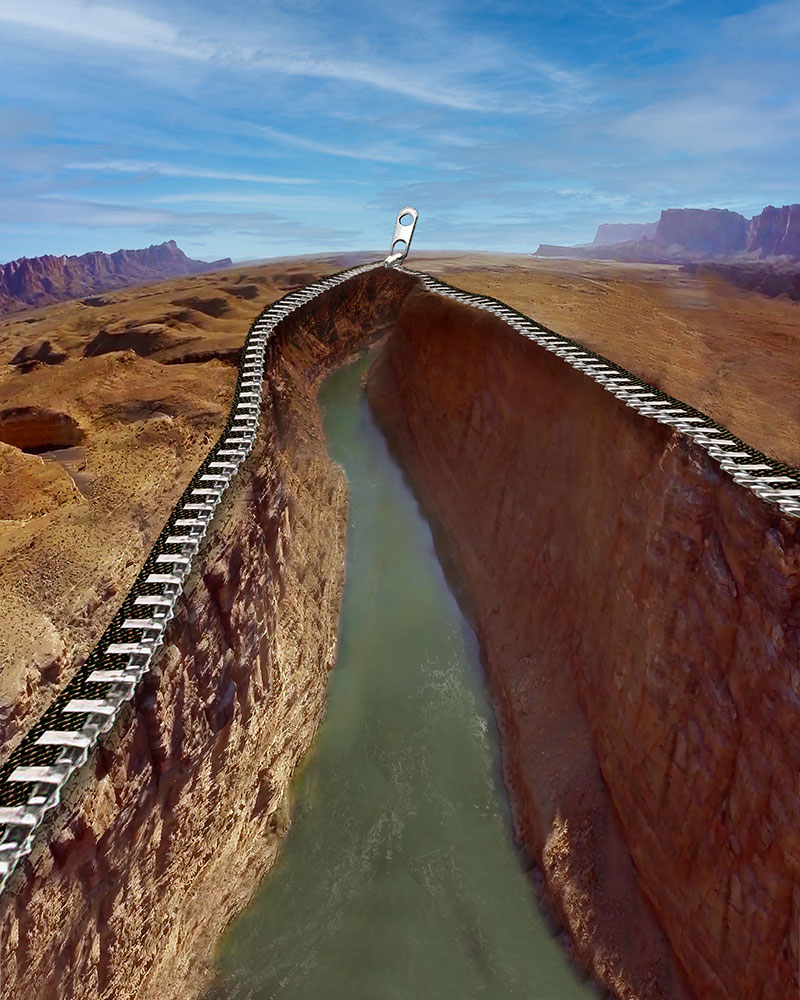No Man’s Land
My wife Debra and I are not outdoor people. We don’t camp; we don’t go hiking. Camping is what I used to do when I was traveling cross-country and was too poor to afford a hotel room. Now that I can afford a hotel room, why would I want to sleep on the ground?
As for hiking, I never understood the concept. So far as I can tell, hiking is the same as walking, except that you do it someplace that’s dirty, insect-ridden, too hot, and almost always uphill. I understand that hiking allows you to see some beautiful sights, but there are plenty of equally beautiful places that I can get to in my car, and I haven’t yet used them up. For us, visiting the Grand Canyon meant sitting in the El Tovar hotel dining room drinking some really nice red wine, looking out at the canyon at sunset, and saying, “Oooh! Pretty!”
We were amazed to find out that our friends were taking trips in the middle of the COVID-19 pandemic, when everything was closed. If you can’t visit museums, theaters, and restaurants, what’s the point of going anywhere? Still, we knew plenty of people who were traveling to Lake Tahoe, or Palm Springs, or some national park or other. I have no idea what they found to do when they got there.
We actually have lovely scenery right in our backyard. I mean that literally — in our backyard. Apart from regular maintenance, we haven’t done anything to it in the thirty years we’ve lived in our house. It’s all natural dirt paths and trees and vines and moss. Everyone who comes to visit us admires it. We actually admire it as well; it’s very pretty to look at through our kitchen window. We used to have a big party there every summer, to which we’d invite everyone we knew, but we stopped doing that when the amount of work started to exceed the amount of fun. Now we rarely have any reason to go out there at all.
I have to admit that I feel guilty that such a nice yard is going to waste. When someone wants to host a gathering but doesn’t have the space, we say, “Have it in our yard!” But nobody takes us up on it; they probably think they’d be imposing. When apartment-dwelling friends complain that they have no place to make a garden, we say, “Come make a garden in our yard!” But the ground out there is rock-hard, and there’s no spot that gets much sun, so the yard remains garden-free.
When Debra and I moved here, we were running a not-very-lucrative business producing educational and training materials. The only reason we could afford the place was that it was old and in run-down condition. We bought it with the understanding that we could fix it up gradually as we became able to afford the improvements, and that’s what we did. But for the first ten years or so, I remember feeling embarrassed about how shabby the house looked, and how the size of our backyard put it beyond our ability to maintain. The 17th-century philosopher John Locke had said that a person had a natural right to as much land as they could take responsibility for, and by that standard, I felt that I wasn’t earning the privilege of living here. By allowing the yard to become overrun with weeds, and living in a house with peeling paint and rotting wood, I was forfeiting my right of ownership.
That feeling eventually went away as our incomes increased and we were able to put some money into home improvements. Over many years, we completely revamped the house — inside and out — and we began to be able to pay a gardening crew to keep our yard looking neat. We encourage community (in non-pandemic times) by opening our house for concerts, and by inviting friends and neighbors to share in whatever resources we have. It’s been a long time since I felt ashamed to be living here. But I haven’t lost the belief that ownership of property doesn’t come automatically with the signing of a deed; it’s something that needs to be continually earned.
To be honest, the whole idea of owning land is hard for me to grasp. The land was here long before we were, and will be here long after we’re gone, so in what sense can we be said to own it? I think of our land in the same way I think of our cats: We’re not their owners; we’re their guardians — we’ve taken responsibility for them. In return for taking responsibility for a piece of land, I get to decide what’s done with it and who can tread on it. But calling it “my land” feels like just a figure of speech. I can own something that humans have made, but I can’t own something that God made.1
I heard a story once that I really like: A stranger encounters two neighbors who are fighting over a piece of land that lies between them.
“I own this land!” says one neighbor.
“No, I own this land!” says the other.
The stranger says, “Why don’t we find out what the land thinks?” As the quarreling neighbors look on, he lowers his ear to the ground and listens; then he nods and gets up again.
“Well, what did the land say?” ask the neighbors.
The stranger replies, “She says that both of you belong to her.”

Great title! I miss your annual party but I’m glad you’re not doing anymore if it was too much work.